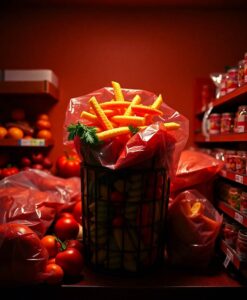Practical habits around shopping, storage, and meal planning can make a measurable difference. Authors and chefs who work with food daily spot patterns most of us miss: how packaging, refrigerator temperature, and the order we cook in influence what stays fresh. Those patterns translate into simple shifts people can try at home that reduce spoilage and stretch grocery dollars further.

Thinking about food waste opens a path to fairness and future readiness. When households lose food, families tighten budgets and communities lose valuable nutrition. Exploring this topic connects to human potential because smarter routines free time, money, and energy for learning, caregiving, and innovation. Click through to learn how practical techniques and small habits can build a fairer, more resilient food system for everyone.
Wasted food is a financial and environmental bummer. It costs U.S. consumers $728 every year, according to the Environmental Protection Agency, and emits the annual equivalent planet-warming greenhouse gases of 42 coal-fired power plants. Carleigh Bodrug, a cookbook author…



